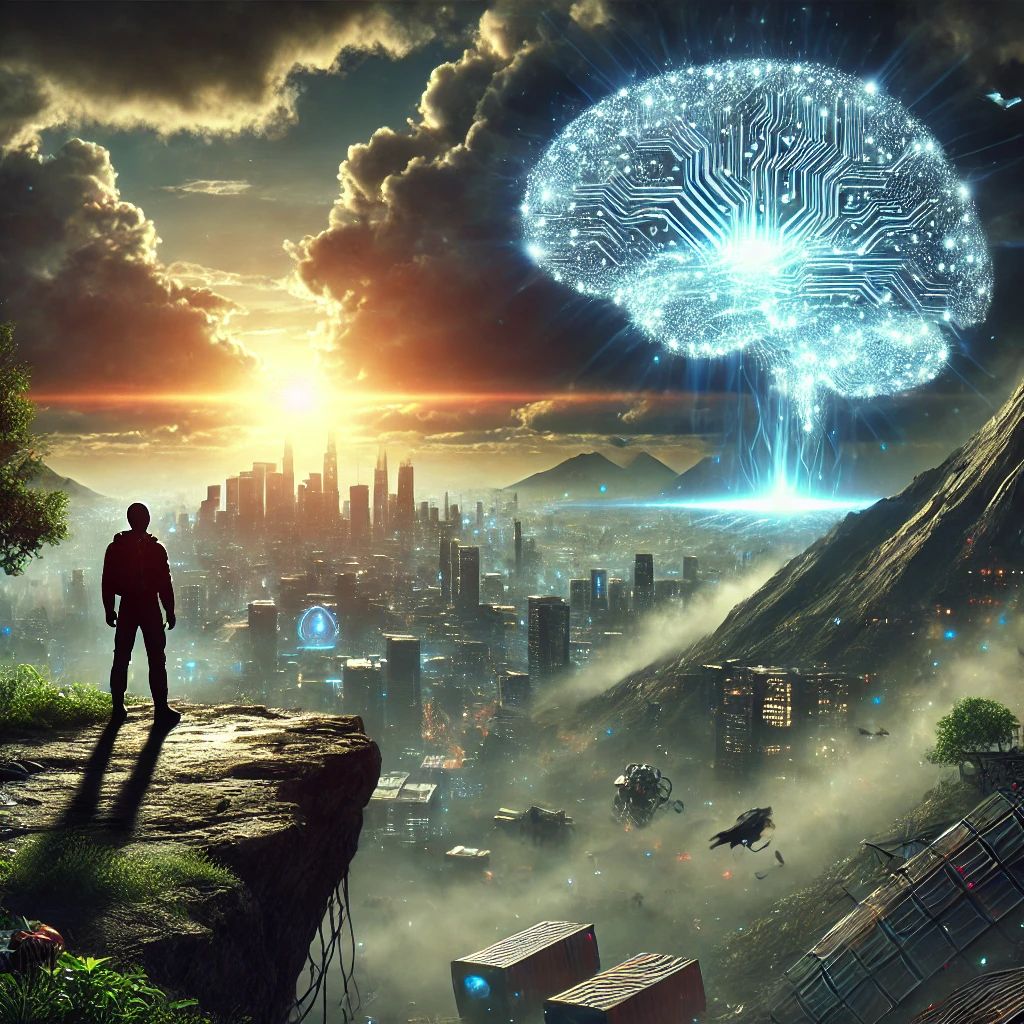# AI and Human Extinction: Exploring the Potential Risks and Benefits
Artificial Intelligence (AI) has become an integral part of our daily lives, revolutionizing industries and pushing the boundaries of what technology can achieve. However, as AI continues to advance at an unprecedented pace, a crucial question arises: Can AI cause human extinction? This thought-provoking topic has sparked intense debate among scientists, technologists, and philosophers alike. In this blog post, we'll explore the potential advantages and disadvantages of AI in relation to human extinction, shedding light on both the promises and perils of this transformative technology.
## The Potential Risks: How AI Could Pose a Threat to Humanity
### 1. Superintelligence and the Control Problem
One of the primary concerns surrounding AI and human extinction is the concept of superintelligence. As AI systems become more advanced, there's a possibility they could surpass human intelligence, leading to what's known as the "technological singularity." The main risk here lies in our ability to control and align such a superintelligent AI with human values and goals.
### 2. Autonomous Weapons and Warfare
The development of AI-powered autonomous weapons raises significant ethical and safety concerns. If these weapons fall into the wrong hands or malfunction, they could potentially cause catastrophic damage on a global scale.
### 3. Economic Disruption and Social Instability
Rapid AI advancements could lead to widespread job displacement, potentially causing economic turmoil and social unrest. In extreme scenarios, this could destabilize societies and governments, indirectly threatening human survival.
### 4. Unintended Consequences and Complexity
As AI systems become more complex, predicting and controlling their behavior becomes increasingly challenging. Unintended consequences of AI actions could have far-reaching and potentially devastating effects on human civilization.
## The Potential Benefits: How AI Could Safeguard Humanity's Future
### 1. Solving Global Challenges
Advanced AI has the potential to tackle some of humanity's most pressing issues, such as climate change, disease, and resource scarcity. By finding innovative solutions to these problems, AI could help ensure the long-term survival of our species.
### 2. Enhancing Human Capabilities
AI can augment human intelligence and capabilities, potentially leading to breakthroughs in science, medicine, and technology that could protect us from existential threats.
### 3. Early Warning Systems and Disaster Prevention
AI-powered systems could help predict and prevent natural disasters, pandemics, and other global catastrophes, giving humanity a better chance of survival in the face of existential risks.
### 4. Space Exploration and Colonization
AI could play a crucial role in advancing space exploration and potentially establishing human colonies on other planets, providing a "backup" for humanity in case of Earth-bound catastrophes.
## Striking a Balance: The Importance of Responsible AI Development
While the potential risks of AI are significant, it's crucial to recognize that human extinction is not an inevitable outcome of AI advancement. The key lies in responsible development, ethical considerations, and robust safety measures. Here are some important steps to ensure AI remains a benefit rather than a threat to humanity:
1. Invest in AI safety research
2. Develop and implement strong AI governance frameworks
3. Promote interdisciplinary collaboration in AI development
4. Educate the public about AI capabilities and limitations
5. Encourage transparency in AI research and applications
## Conclusion
The question "Can AI cause human extinction?" doesn't have a simple answer. While the risks are real and should be taken seriously, the potential benefits of AI in safeguarding humanity's future are equally significant. By approaching AI development with caution, ethics, and a focus on human values, we can work towards harnessing the power of artificial intelligence to create a better, safer world for all.
As we continue to push the boundaries of AI technology, it's crucial to remain vigilant, fostering open dialogue and collaboration to ensure that AI remains a tool for human progress rather than a threat to our existence.

